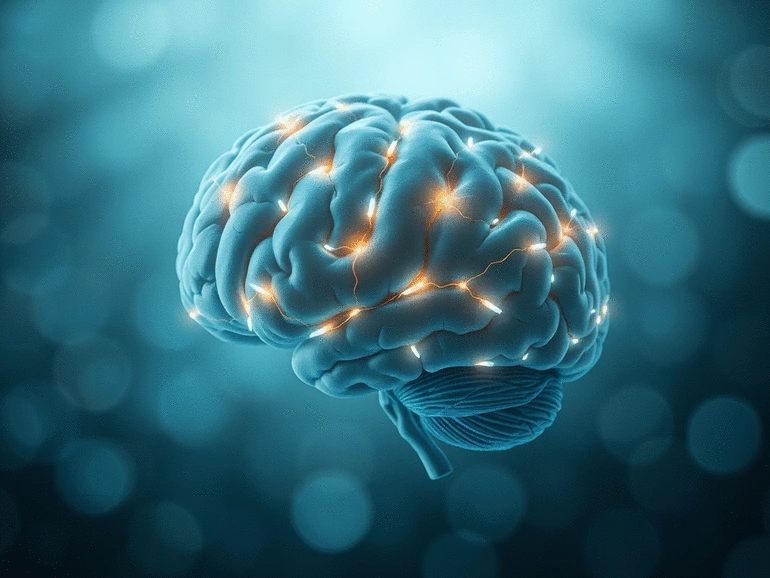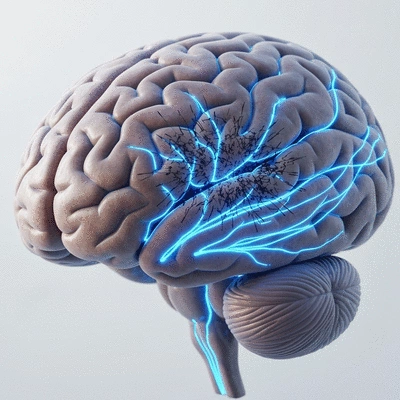Brain Regions Affected
Key Areas & Impact
- • **Hippocampus:** Memory & Learning
- • **Amygdala:** Emotional Responses
- • **Prefrontal Cortex:** Decision-making & Regulation

Stress is not just a mental state; it's deeply rooted in our biology. Understanding this connection is crucial for managing your stress effectively and reclaiming your mental well-being.
Stress isn't just mental; it profoundly alters brain chemistry and function. Understanding these biological changes is key to effective stress management. The visual below summarizes how stress impacts key brain regions, cortisol levels, and neuroplasticity.
Stress isn't just a mental phenomenon; it has deep biological roots that affect how our brains function. When we experience stress, our brain chemistry undergoes significant changes that can impact our overall mental health. Understanding this biological basis is crucial for anyone looking to manage their stress more effectively. At Stress Insight Solutions, we delve into these complex interactions to help you recognize how stress influences your brain and, ultimately, your well-being.
One of the primary ways that stress manifests in the body is through changes in our brain's neurochemistry. As we explore this topic, keep in mind that a clear grasp of these biological processes can empower you to take action in your stress management journey!
When stress occurs, our body releases a cocktail of hormones and neurotransmitters that can significantly alter brain function. These include adrenaline, which boosts energy, and cortisol, often known as the stress hormone. Together, they prepare our body for a "fight or flight" response. However, when stress becomes chronic, these chemicals can lead to neurobiological changes that harm our mental health.
Understanding these effects can help you recognize the importance of managing stress proactively. When we learn how stress operates at the biochemical level, we can better address its consequences!
Neuroplasticity refers to the brain's ability to reorganize itself by forming new neural connections. Stress, particularly chronic stress, can disrupt this process and lead to cognitive decline. At Stress Insight Solutions, I often emphasize that fostering neuroplasticity is key to maintaining mental health. Research, such as that published in PMC NCBI, highlights how stress can hinder neuroplasticity, impacting learning and memory.

By understanding the relationship between stress and neuroplasticity, we can develop effective strategies to mitigate stress impacts on our brains. This insight is crucial for anyone looking to improve their mental resilience!
Cortisol plays a pivotal role in our body’s stress response. While it's essential for survival and helps regulate metabolism, prolonged high levels can wreak havoc on both our physical and mental health. Studies, including those highlighted in PNAS, demonstrate the profound impact of chronic stress and elevated cortisol on brain structures and functions. It’s important to manage cortisol levels through healthy lifestyle changes to maintain optimal brain function.
Understanding cortisol's role reminds us of the importance of implementing stress management techniques. By addressing cortisol levels, we can foster a healthier brain environment and enhance our overall mental resilience.
Chronic stress doesn’t just cause temporary discomfort; it can have long-lasting effects on key brain regions. By examining these impacts, we can further understand how to protect our brain health and enhance our coping strategies. The Frontiers in Psychiatry journal provides further insights into how stress affects the brain's functional connectivity.
By recognizing how stress affects these critical areas, we can begin to implement supportive practices that promote better brain health. Understanding is the first step toward lasting change!
How do you manage stress in your daily life? Are there specific techniques or practices that have worked for you? Share your thoughts below!
Understanding the relationship between stress and brain chemistry is essential for anyone looking to manage their mental health effectively. Stress can disrupt our brain function and significantly alter our brain chemistry, leading to various cognitive and emotional challenges. Recognizing this interplay allows us to take proactive steps toward fostering resilience and enhancing our well-being.
Here are some key takeaways regarding brain function and stress:
By grasping these concepts, we can better navigate the challenges that stress presents in our daily lives.
Taking charge of our stress response is critical for maintaining mental health. At Stress Insight Solutions, we emphasize the importance of adopting proactive strategies to mitigate stress effects. Here are a few practical approaches:
Implementing these strategies can help cultivate a healthier mindset and improved brain function, allowing us to face life's stressors with greater resilience.
Social support plays a vital role in stress management. When we have strong connections with others, we not Prethinking feel more secure but also gain access to a wealth of coping mechanisms. Research shows that individuals with supportive relationships often experience lower stress levels and better overall mental health.

Consider these benefits of social support:
Building and nurturing these connections can significantly bolster our resilience, helping us manage stress more effectively.
If you're feeling overwhelmed by stress and unsure how to cope, seeking professional help can be a game changer. A clinical psychologist, like myself, can provide tailored strategies that equip you with the tools necessary for managing stress. It's important to recognize when you're struggling beyond what self-help methods can address.
Here are some signs that it might be time to consult a specialist:
Taking this step can help you gain clarity and support in your journey toward better mental health.
Creating a nurturing environment is essential for mental well-being. This involves both physical and emotional aspects of our surroundings. Simple changes can lead to a more supportive atmosphere that encourages resilience and coping.
Some ways to foster this environment include:
By actively shaping your environment, you can lay the groundwork for a more resilient you!
Sleep and stress are closely intertwined. Poor sleep can exacerbate stress levels, while high stress can lead to sleep disturbances. Recognizing and addressing sleep disorders is vital for breaking this cycle and improving overall mental health.
Strategies to improve sleep include:
Remember, addressing sleep is a crucial component of managing stress and supporting brain health. With the right tools, you can create a more peaceful and restorative sleep environment.
Here is a quick recap of the important points discussed in the article:
We illuminate the causes and effects of stress through science-informed resources, empowering you to recognize stressors and implement effective coping strategies. Your mental well-being is our priority.
